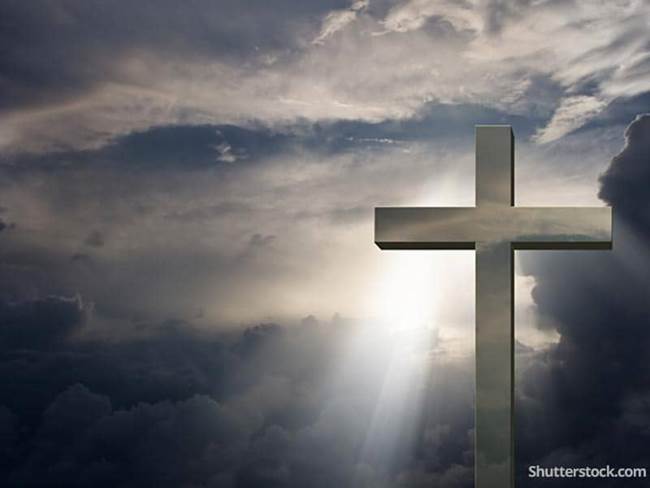American evangelicalism may have inflicted a mortal wound on itself in the mid-2010s. With the election of Donald Trump as a symbol of a broader philosophical sickliness, many young evangelicals hastened a speedy exeunt from their past religious affiliation. These “post-evangelicals” are not so much a denominationas they are a nebula suspended in limbo between various traditions and schools of thought, both religious and political, while still retaining certain key sentiments of evangelicalism. On the whole, however, they have a sense of, to quote a friend of mine, “religious homelessness”.
Post-evangelicals tend to think the past generation of evangelicals responded inadequately—or even disinterestedly—to the “real” political and moral questions raised over the last two or three decades. To them, evangelicalism “lost touch with reality” and sold itself out to various ideologies including, it seems, the far right–if not explicitly, then implicitly. The reason for this loss of touch, I argue, is in large part because evangelicalism believes a myth about the neutral separation of church and state, the entirely modern bifurcation between politics and religion.
This bifurcation is the root of many of evangelicalism’s ethical ironies, the most prominent of which is that instead of actually accomplishing a peaceful truce between powers, it actually set the two spheres in competition with each over Christianity’s ultimate allegiance. Religion and politics actually became all the more intimately linked, but with the former at the mercy of the latter. And in attempting to practically reconcile the two spheres, evangelicals were persuaded (or chose) to conceive of politics as a tool, an instrumental means by which the Christian citizen could and should achieve the end of securing his individual and state-promised rights to worship as he wished.
In reality, and despite every appeal to the straw man of “the founders’ original intention”, by trying to utilize politics to “bring heaven to earth”, the state, as a matter of course, really became heaven’s mediator.
This is a part of evangelicalism’s (again, ironic) underlying liberalism; it is perhaps even more liberal than “those liberals” it thinks are trying to destroy it. And one of the practical results of the ironic liberalism is that it became a “Christian duty” to appeal to the modern state for one’s own religious life, free from state-endorsed Darwinian evolution and other “demonic influences”.
In short, evangelicals, trapped in their ironic liberalism, had to appeal to the state for their freedom from the state. The state practically became evangelicalism’s one, true authority—however distrustful of that authority evangelicals can be. But then, Christ could only be their authority in theory or merely sentiment.
This also may explain why evangelicalism failed to distance itself from Donald Trump: Trump at once galvanized the state, sympathizing with Christians who thought the state had turned from God’s will, but all the while emdodied state power in such a way that it could be turned back to God’s will. He effectively became the embodiment of an alternative polis in a twisted image of that kingdom of which Stanley Hauerwas has repeatedly reminded us that we participate in as Christians.
And this irony is perhaps also why old evangelicalism so easily lends itself out to other ideologies that parade themselves as Christian-compatible (nationalism, capitalism, etc.): because evangelicalism’s ironic liberalism requires other ideologies by which it can at once distance itself from the state and also try to manipulate it all the more in their favor. They want tools for their tools. Really, they have become tools of ever-multiplying ideological systems.
It plays out in a kind of “feedback” like in a sound system, and it is often just as shrill. Its cause, as I have said, is the mostly because of the bifurcation of religion and politics. Post-evangelicals experience this feedback acutely even if they can’t initially put words to it.
It should, however, not be understood that post-evangelicals (and here, I include myself among their disheveled ranks) are simply victims of a former Christian generation’s mishandling of the political climate, thereby legitimizing the implicit ageism that many post-evangelicals entertain. No, we are vulnerable to the same—if not more brutal—ironies which bedeviled our immediate ancestors. Resentment often inspires us to try to throw out the past, but this can only end in a kind of self-induced haunting by ghosts whose names we have forgotten.
Rarely, it seems, do we seem keen on following deeper our own sense of “religious homelessness” to its root in Christ’s teaching to be “in but not of” the world, our divine atopia (out-of-placeness), our sense of Christian sojourning on earth being intimiately informed by our belonging to, and longing for, heaven. We often want to elide it in order to shape Christianity into a “relevant” answer to those very same questions we accuse old evangelicalism of ignoring.
Nor do we seem entirely open to renouncing political power in favor of love, caritas, friendship with God, perhaps because it seems on the outside only to be an escape into religion. But isn’t the love of God coextensive with the love of our neighbor? And might not such a renunciation for a love which is lived out then potentially heal the rift between politics and religion (into which old evangelicalism seems so ready to throw itself) by—not ironically, but —paradoxically constituting both Christian “religion” and “politics”? And would it not also mean that the summation of Christian politics is not simply voting for “God’s candidate”, but rather loving God with all that we are and loving our neighbor?
As the late, great Ivan Illich reminded us, we cannot choose who our neighbor is. We cannot pick the acceptable, agreeable, or convenient person. Instead, we should rather be open to the surprising appearance of the outsider—tabooed, unclean, and beaten to death on the road—just as we are open to Christ’s parousia. Christianity, it seems, is always already political.
A final note: At the moment, post-evangelicalism is, as I said, suspended in limbo. As far as I can tell, it’s really more of a halfway home for the disillusioned than a developing body of living thought. Many might move on to “high” liturgical forms of Christianity, or else they might take up various socio-political forms of liberal Protestant thought (namely forms of liberation and feminist theology). Some might just stick it out, or else leave Christianity behind altogether. I don’t presume here to offer a complete solution for the quasi-schism currently playing out, but I hope that I have suggested that a more robustly Christian notion of the political, with love at its center, is key to any potential dialogue.
Guest post by Michael Wilcher. Michael lives in Virginia Beach, VA. He has an M.T.S. from Regent University and has been accepted to Hughes Hall, Cambridge where he will begin studies for MPhil in Philosophy of Religion in the Michaelmas term.













